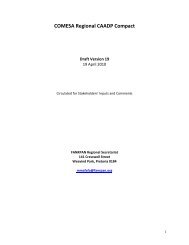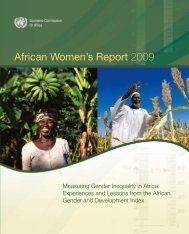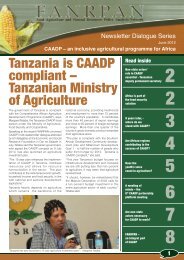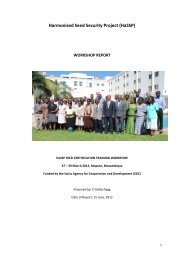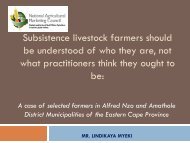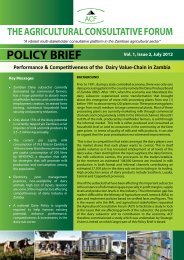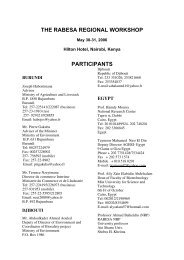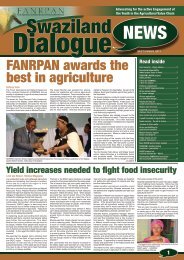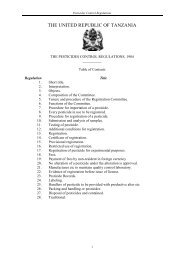Community-driven development decision tools for rural - IFAD
Community-driven development decision tools for rural - IFAD
Community-driven development decision tools for rural - IFAD
- No tags were found...
Create successful ePaper yourself
Turn your PDF publications into a flip-book with our unique Google optimized e-Paper software.
to use the money in the way it decides <strong>for</strong> any activity it can legitimately undertake within itsdomain. The local government may autonomously decide, <strong>for</strong> example, how much of thegrant will be allocated to schools and to which type of schools, whether any child can beadmitted to school, how much parents should pay, how much will be allocated to roads,which type of roads, where they will be built, rehabilitated, maintained and so on.Unconditional grants provide the maximum flexibility and autonomy to local governmentadministrations and involve minimum control by the central government.12. Conditional lump sum grants may impose several conditions that local governments mustrespect. For example, the central government may specify which activities are to be fundedand which are not to be funded by the grant. Government may dictate standards <strong>for</strong> buildingschools, health posts or roads, and may impose non-discriminatory access to schools.Governments may also require that specific targets be achieved (e.g. <strong>for</strong> vaccination coverageor condom distribution).13. Matching grants always include the condition that local governments must fund a portion ofthe cost of the goods and services provided with the grant money. They also specify whichfunction is to be funded by the grant (e.g. the money can be used <strong>for</strong> water supply but not <strong>for</strong>roads, <strong>for</strong> health centres, but not to pay teachers). They may specify what portions of thefunds should be spent on particular activities or may leave that <strong>decision</strong> to the localgovernment. Other conditions may also be imposed, such as standards to be used or costrecovery measures to be applied.14. The allocation of IGFTs to local governments in different areas in a country may be guided bythe principle of inverse tax capacity, in which local governments of poor areas with a weak taxcapacity are allocated a larger share of the total financial requirements than localgovernments of rich areas with a stronger tax capacity. This principle aims to correct thepotential regressive effect of IGFTs on the country’s regional fiscal equity.15. Most central fiscal authorities are responsible <strong>for</strong> ensuring that the overall balance of publicrevenue and expenditure remains within planned limits. They generally are not in favor offiscal decentralization and try to reduce its scope, strongly opposing local governmentsborrowing funds from the banking system. They tend to introduce tight control proceduresand other mechanisms to ensure respect of the budget ceilings, fearing that the overallbalance might get out of control. The difficulties in en<strong>for</strong>cing supervision and accuratefinancial reporting on a multitude of decentralized spending centres generate tight ex antecontrol on budgets and prudent (i.e. slow) release of funds. Empirical evidence collected bysome authors does suggest, however, that these fears may be exaggerated. 4716. For fiscal decentralization to be acceptable to devolved authorities, effective mechanismsmust be in place to en<strong>for</strong>ce financial discipline without endangering the capacity of thedecentralized units to manage their programs. A major problem caused by local governmentsthat have lukewarm financial discipline is that central governments are ultimately obligatedto honor local governments’ legally valid documents that commit to payment. Mechanismsacceptable to central authorities include the balanced budget rules, shown in Box A-1, andthe “no bail-out condition”. The “no bail-out condition” states that (a) the central47 Anwar Shah, Fiscal federalism and economic governance: For better or <strong>for</strong> worse?, 1997.88



